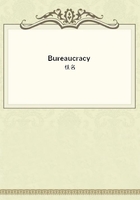
第23章 THE TEREDOS NAVALIS, OTHERWISE CALLED SHIP-WORM(7)
This ferret of ideas did not deny himself the pleasure of spying upon sentiment, and this woman interested him more than any of the others to whom he had attached himself. Des Lupeaulx had reached an age when men assert pretensions in regard to women. The first white hairs lead to the latest passions, all the more violent because they are astride of vanishing powers and dawning weakness. The age of forty is the age of folly,--an age when man wants to be loved for himself; whereas at twenty-five life is so full that he has no wants. At twenty-five he overflows with vigor and wastes it with impunity, but at forty he learns that to use it in that way is to abuse it. The thoughts that came into des Lupeaulx's mind at this moment were melancholy ones. The nerves of the old beau relaxed; the agreeable smile, which served as a mask and made the character of his countenance, faded; the real man appeared, and he was horrible. Rabourdin caught sight of him and thought, "What has happened to him? can he be disgraced in any way?"The general-secretary was, however, only thinking how the pretty Madame Colleville, whose intentions were exactly those of Madame Rabourdin, had summarily abandoned him when it suited her to do so.
Rabourdin caught the sham statesman's eyes fixed on his wife, and he recorded the look in his memory. He was too keen an observer not to understand des Lupeaulx to the bottom, and he deeply despised him;but, as with most busy men, his feelings and sentiments seldom came to the surface. Absorption in a beloved work is practically equivalent to the cleverest dissimulation, and thus it was that the opinions and ideas of Rabourdin were a sealed book to des Lupeaulx. The former was sorry to see the man in his house, but he was never willing to oppose his wife's wishes. At this particular moment, while he talked confidentially with a supernumerary of his office who was destined, later, to play an unconscious part in a political intrigue resulting from the death of La Billardiere, he watched, though half-abstractedly, his wife and des Lupeaulx.
Here we must explain, as much for foreigners as for our own grandchildren, what a supernumerary in a government office in Paris means.
The supernumerary is to the administration what a choir-boy is to a church, what the company's child is to the regiment, what the figurante is to a theatre; something artless, naive, innocent, a being blinded by illusions. Without illusions what would become of any of us? They give strength to bear the res angusta domi of arts and the beginnings of all science by inspiring us with faith. Illusion is illimitable faith. Now the supernumerary has faith in the administration; he never thinks it cold, cruel, and hard, as it really is. There are two kinds of supernumeraries, or hangers-on,--one poor, the other rich. The poor one is rich in hope and wants a place, the rich one is poor in spirit and wants nothing. A wealthy family is not so foolish as to put its able men into the administration. It confides an unfledged scion to some head-clerk, or gives him in charge of a directory who initiates him into what Bilboquet, that profound philosopher, called the high comedy of government; he is spared all the horrors of drudgery and is finally appointed to some important office. The rich supernumerary never alarms the other clerks; they know he does not endanger their interests, for he seeks only the highest posts in the administration. About the period of which we write many families were saying to themselves: "What can we do with our sons?" The army no longer offered a chance for fortune. Special careers, such as civil and military engineering, the navy, mining, and the professorial chair were all fenced about by strict regulations or to be obtained only by competition; whereas in the civil service the revolving wheel which turned clerks into prefects, sub-prefects, assessors, and collectors, like the figures in a magic lantern, was subjected to no such rules and entailed no drudgery. Through this easy gap emerged into life the rich supernumeraries who drove their tilburys, dressed well, and wore moustachios, all of them as impudent as parvenus. Journalists were apt to persecute the tribe, who were cousins, nephews, brothers, or other relatives of some minister, some deputy, or an influential peer. The humbler clerks regarded them as a means of influence.
The poor supernumerary, on the other hand, who is the only real worker, is almost always the son of some former clerk's widow, who lives on a meagre pension and sacrifices herself to support her son until he can get a place as copying-clerk, and then dies leaving him no nearer the head of his department than writer of deeds, order-clerks, or, possibly, under-head-clerk. Living always in some locality where rents are low, this humble supernumerary starts early from home.
For him the Eastern question relates only to the morning skies. To go on foot and not get muddied, to save his clothes, and allow for the time he may lose in standing under shelter during a shower, are the preoccupations of his mind. The street pavements, the flaggings of the quays and the boulevards, when first laid down, were a boon to him.